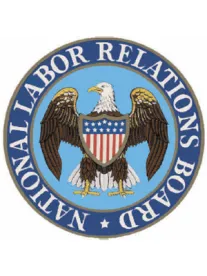On December 16, 2022, a National Labor Relations Board (Board) majority (Members Kaplan and Ring) issued a Decision and Order holding that an employer’s conduct did not warrant setting aside a union election where the employer failed to strictly adhere to regulations requiring employers to provide unions a voter list comprised of employee names and contact information (commonly known as an Excelsior list).
The employer in the case provides security services at the U.S. border, including the transportation of unaccompanied minors to emergency influx sites and licensed care facilities. The union sought to represent a unit of full- and part-time employees involved in child and family care and protection at the emergency influx sites and licensed care facilities. In accordance with 29 C.F.R. § 102.62(d) (the codification of the longstanding Excelsior list requirements), the employer provided the union a voter list containing employee names, addresses, email addresses and cell phone numbers. The employer, who communicated with employees via employees’ cell phones, did not include in the voter list the employees’ home phone numbers because, after reviewing employees’ contact information, the employer determined that employees either did not provide home phone numbers, or provided a home phone number identical to their respective cell phone number. However, the employer made a mistake with respect to five employees, and did not provide the union those employees’ home phone numbers, which differed from those employees’ cell phone numbers. The employer included on the voter list all other information for the five employees that is required by the regulation.
In applying the appropriate standard, the Board looked to whether, under the circumstances, the employer substantially complied with the voter list requirements in 29 C.F.R. § 102.62(d), despite failing to include home phone numbers for the five employees. The Board considered the following facts essential to its determination that the employer substantially complied with the voter list requirements:
-
The union lost by 19 votes, so the employer’s failure to include the home phone numbers for the five employees was an error that could not have had a determinative impact on the election.
-
The employer failed to provide home phone numbers only, and provided all other required information, including cell phone numbers, which the employer confirmed were working and regularly used by all employees.
-
The employer’s mistaken exclusion of the five home phone numbers was due to a misreading of the five employees’ accompanying cell phone numbers, which the employer inadvertently believed were identical to the home phone numbers.
-
There was no evidence presented that the employer became aware of its mistake prior to the election.
Importantly, Chairman McFerran disagreed with the majority’s ruling, arguing that the employer’s knowledge of the mistake—despite the absence of evidence establishing that the employer became aware of the mistake prior to the election—and the employer’s failure to strictly comply with the regulation rendered the employer incapable of achieving substantial compliance.
While the majority’s ruling is a win for common sense, Chairman McFerran’s dissent and the majority’s focus on (1) the impact of the employer’s mistake on a non-determinative number of voters, and (2) the lack of evidence as to when the employer became aware of its mistake, highlights the limits to which the Board may be willing to go in furtherance of common sense. First, Chairman McFerran’s approach would require employer’s to strictly (not substantially) comply with the voter list regulations and provide employees’ “home” phone numbers even where such are duplicative of employees’ “cell” phone numbers. Such a strict reading could foreseeably be extended to other voter list requirements, like names and email addresses, and even minor, non-substantive mistakes could lead to successful union election challenges.
Second, the majority’s focus on the non-determinative nature of the employer’s error, and whether the employer became aware of the mistake prior to the election, limit the applicability of the majority’s holding, leaving open an argument that an employer’s non-substantive mistake could serve as a basis to overturn an election if the mistake impacts a determinative number of votes and/or the employer becomes aware of the mistake prior to the vote, even where the mistake has no impact on the union’s ability to identify and communicate with employees (like here, where the union had working cell phone numbers, email addresses, and home addresses for all the employees). While this ruling may give employers some wiggle room when it comes to preparing voter lists, employers should nevertheless strive for strict compliance with the regulations and quickly remedy any errors to mitigate against a non-substantive error gifting a union a second bite at the apple.





 />i
/>i
